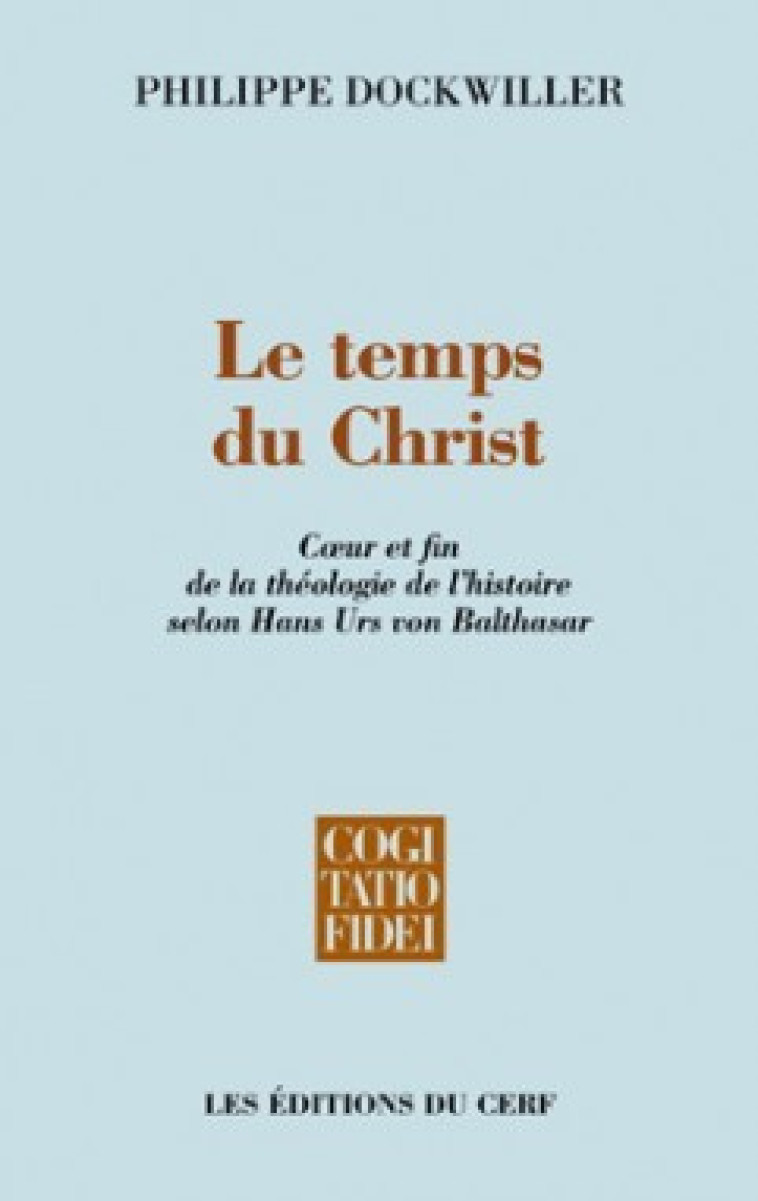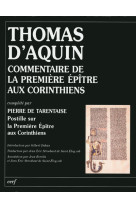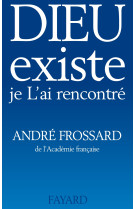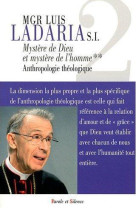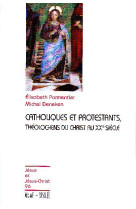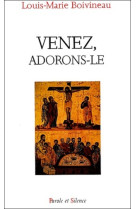Comment comprendre que la venue historique du Verbe en chair, Jésus de Nazareth, récapitule toutes les dimensions entendues sous l'expression " théologie de l'histoire ", à savoir le devenir historique de l'humanité, l'originalité et le caractère absolu du fait chrétien, le sens chrétien du temps, l'harmonie des deux Testaments, la signification du temps de l'Église, l'achèvement de l'homme dans l'histoire, l'espérance chrétienne et la destinée ultime des créatures ? Pour les chrétiens, bien qu'il appartienne à une époque révolue, Jésus-Christ reste la clé de la totalité du développement historique. Une telle affirmation peut-elle être autre chose qu'une conviction arbitraire sans fondement rationnel ? Si, en revanche, elle n'est pas absurde, cette affirmation n'a pas seulement une conséquence sur la manière de concevoir la succession des époques et des âges. Elle induit une manière concrète d'habiter le temps, celui du quotidien, mesuré par les horloges et le calendrier. Hans Urs von Balthasar (1905-1988), en proposant sa " Dramatique divine " (1973-1983), éclaire, par la médiation du théâtre comme genre littéraire et comme performance en scène, l'originalité propre à l'intelligence chrétienne du temps décisif, le temps de la vie du Christ, temps définitif accompli et modèle de la temporalité chrétienne. Le temps et l'histoire sont bien développés selon le schéma linéaire d'un avant et d'un après Jésus-Christ. Mais ils sont également conçus comme disposés autour de ce centre. À la croisée d'un temps mesuré par le chronomètre et d'un temps qualifié par l'apparition et la rencontre des personnes, la représentation théâtrale donne à comprendre la validité esthétique, dramatique et théologique d'une conception à la fois linéaire et concentrique du temps et de l'histoire. -- How should we understand that the historical advent of the Word in flesh, Jesus of Nazareth, contains all the dimensions understood by the term "theology of history', in other words the historical becoming of humanity, the originality and the "absolute' facet of Christianity, the Christian meaning of time, the harmony of the two Testaments, the Church's signification of time, man's accomplishment in history, Christian hope and the ultimate destiny of beings? For Christians, although he belongs to past ages, Jesus Christ remains the key to the entire historical development. Can such a proclamation be anything other than an arbitrary conviction, without reasonable grounds? Yes indeed, it is not absurd, this proclamation not only has bearing on the way we conceive the succession of epochs and eras, it also infers a concrete way of living in time, an everyday way, measured by clocks and a calendar. Hans Urs von Balthasar (1905-1988), by proposing his "Dramatique divine' (1973-1983), a mediation of the theatre as a literary genre and of performance on the stage, enlightened us as to the specific originality of the decisive Christian intelligence of time, the time of Christ's life, a conclusive, accomplished time and a Christian model of temporality. Aren't time and history developed according to a linear schema of before and after Jesus Christ? But they are also conceived as being arranged around this centre. At the intersection of chronometered time and time qualified by the appearance and meeting of people, theatrical representation presents for our understanding the aesthetic, dramatic and theological validity of a conception both linear and concentric of time and history.

